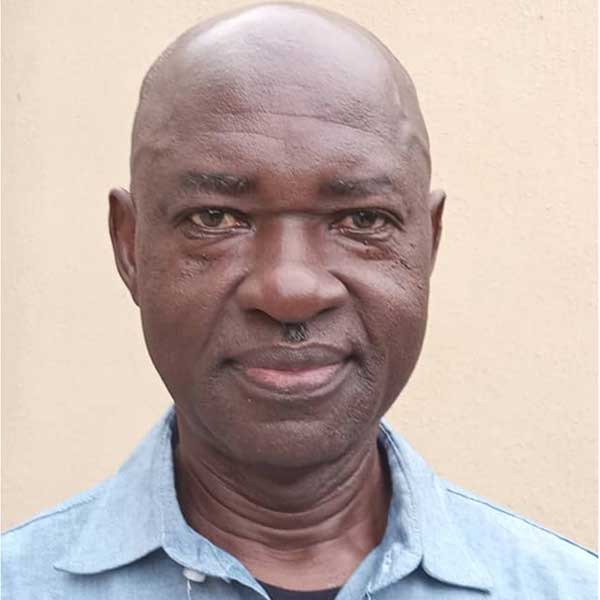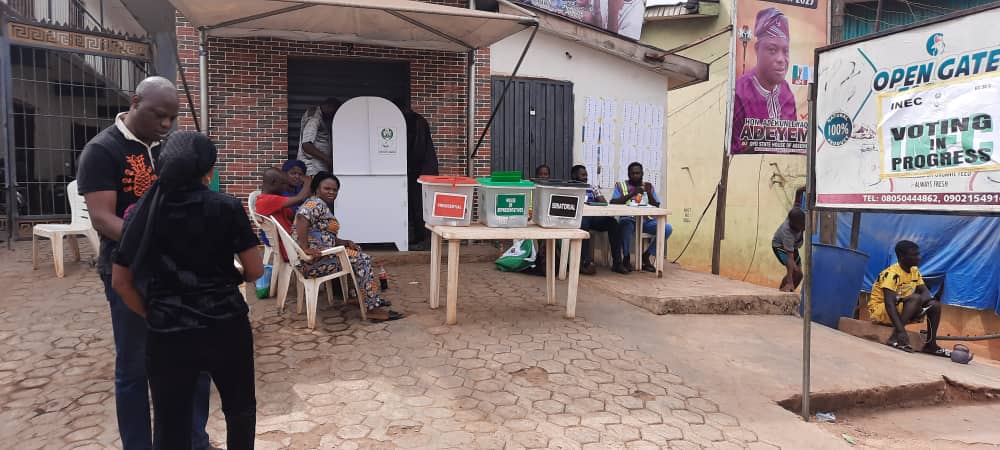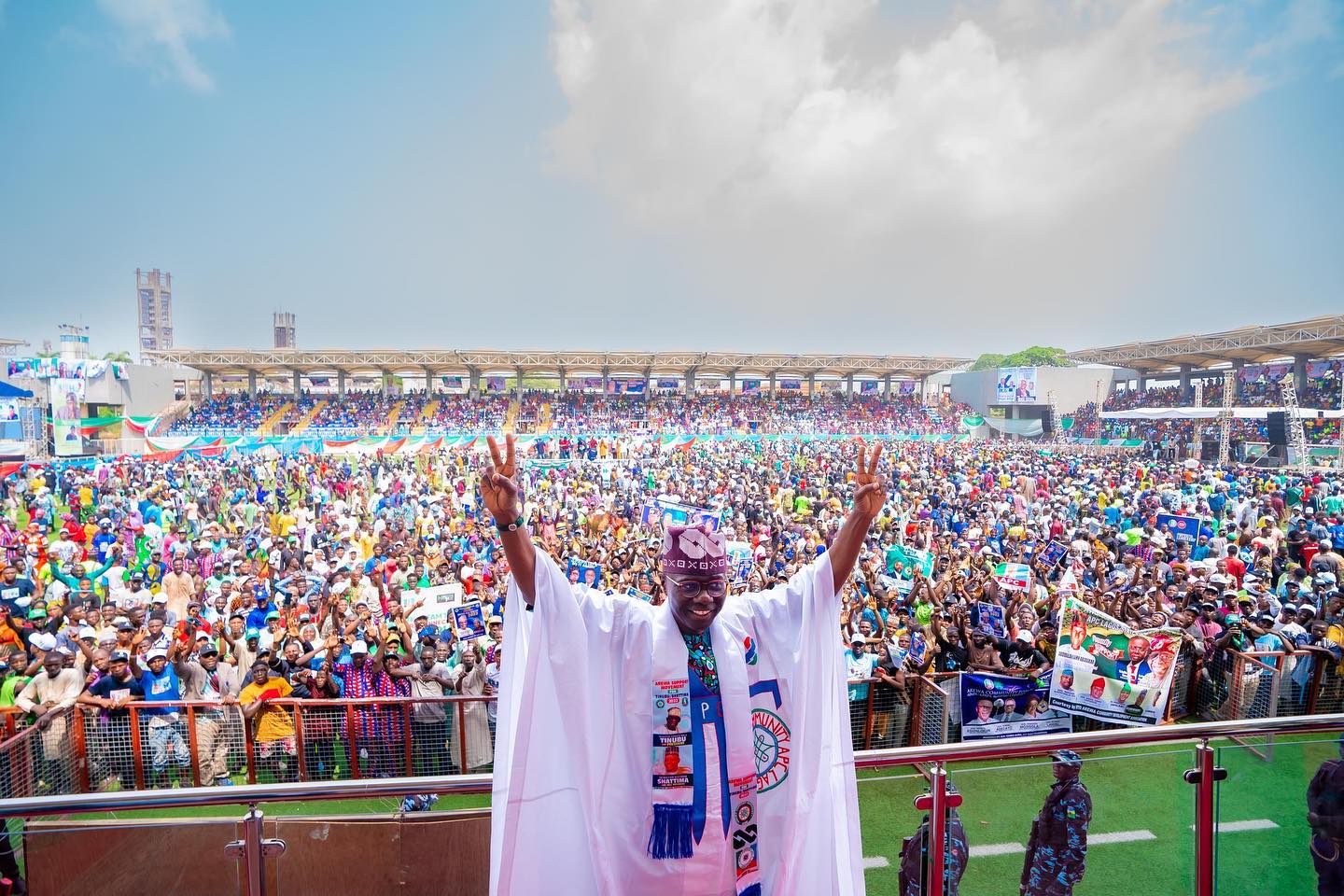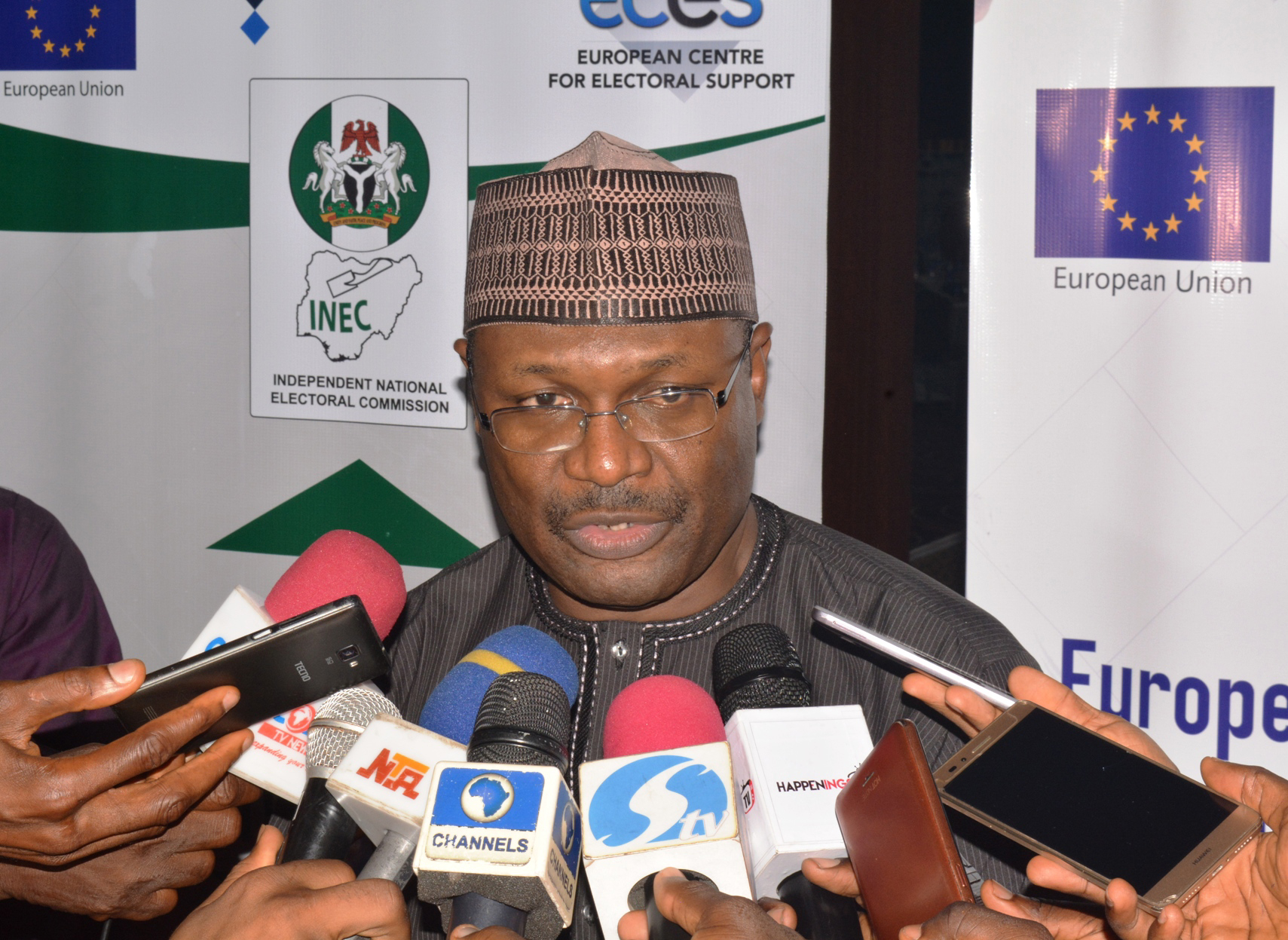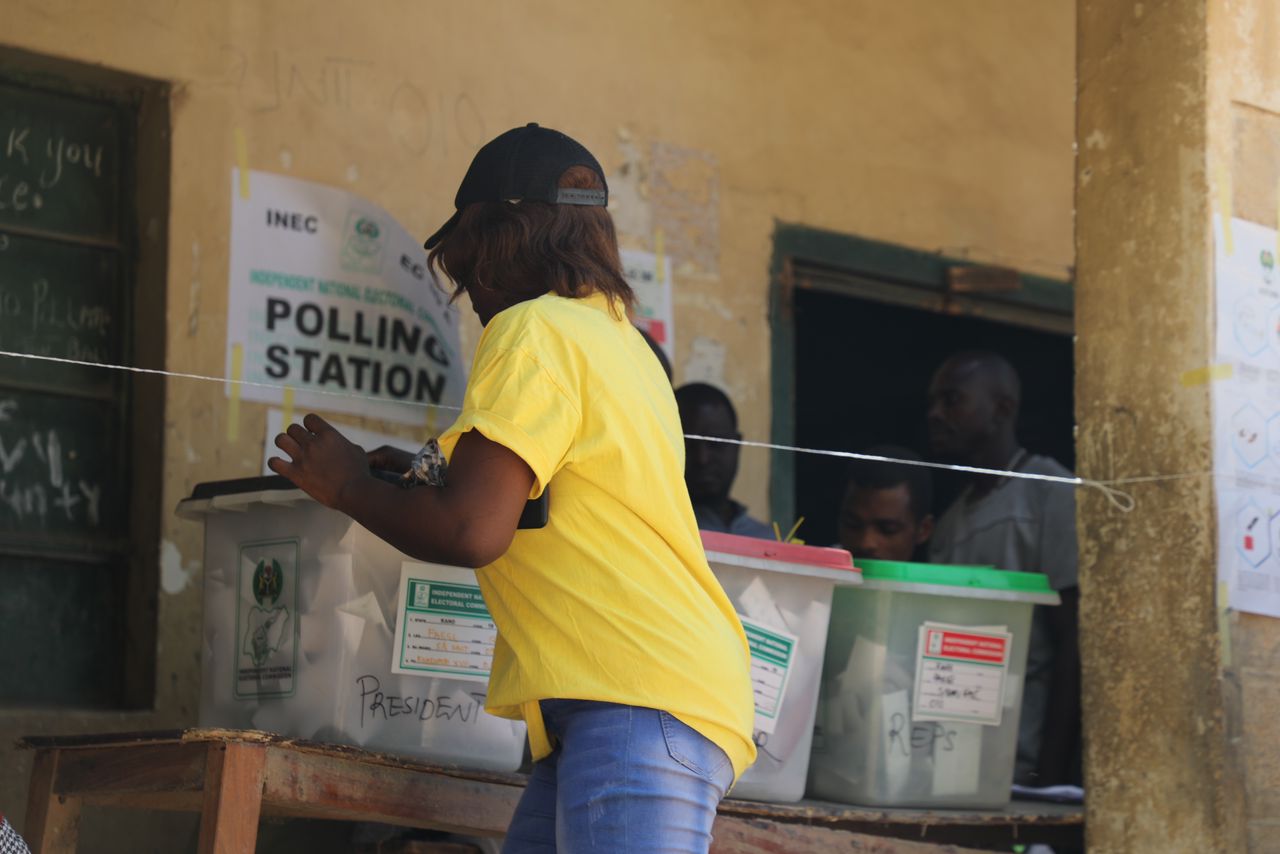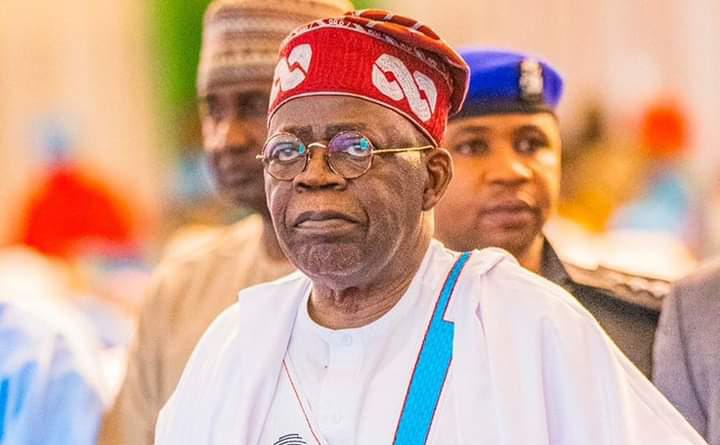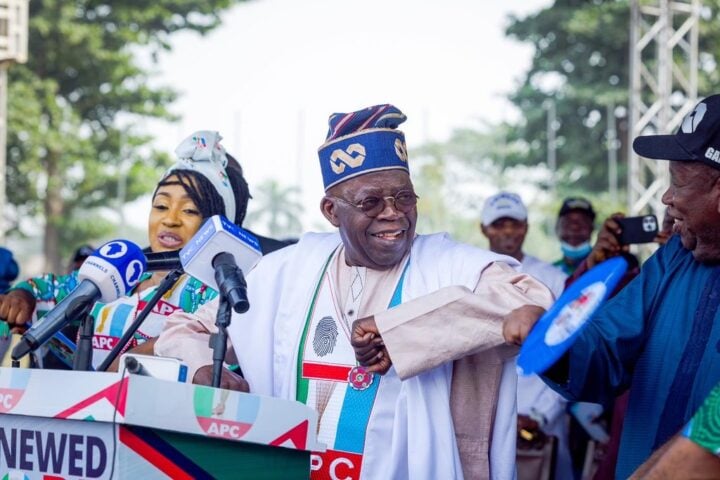After a period of waiting, the Independent National Electoral Commission (INEC) announced the Candidate of the All Progressives Congress (APC), Asiwaju Ahmed Bola Tinubu, as the winner of last weekend’s presidential poll and, yesterday, presented his certificate of return to him.
The total votes for the three leading contenders, as declared by INEC, indicate a tight race. The APC scored approximately 8.8 million;Wazirin Atiku Abubakar of the Peoples’ Democratic Party (PDP) polled nearly seven million, while Mr. Peter Obi of the Labour Party garnered 6.1 million. Critics of these figures have since gone to town with objections to virtually all the steps that produced them in the first place. It’s important that dissenting voices are not suppressed by any means as that would run counter to a major cardinal of democracy, namely the right of the peopleto be heard.
It is noteworthy that the stage for the rejection of results, especially by the main opposition parties, was set early. The ruling party shouldn’t be surprised by that as the machineries for the conduct of elections are directly or indirectly controlled by the federal government. Even before the pronouncements by INEC’s National Chairman, Prof. Mahmood Yakubu, a large section of international observers had marked the overall execution of the polls below global average. And, as if energised by that foreign intervention (interference, depending on the side of the table one belongs to), PDP and LP, not the best of pre-election friends, quickly closed ranks and called for the cancellation of the exercise and removal of Yakubu.
Considering the volume and intensity of the reported cases of election malpractices and violence, such declarations weren’t unexpected. Shock, sincere concerns for the survival of our political system, unwillingness to acceptdefeat, genuine protest against injustice, and hysteria might have variously contributed to those calls that couldn’t even wait for the official proclamation of the winner. Interestingly, many of those factors are in the realm of emotions. Again, as humans, no one should deny anyone the freedom to express his/her sentiments. Sentiments because, most of the ‘proofs’ of infractions are, at this point, allegations. In an era when the internet often serves a not-always-glorious purpose of twisted mediated reality, when pictures are no more theplausible tools of evidence they once were, not many things that seem certain can stand the test of credulity.
Advertisement
Not surprisingly, all these have happened against the backdrop of heightened, sometimes baseless, hopes. The run–up to February 25 was characterised largely by campaigns on steroids. Here are some of the bases for the arguably exaggerated optimism of APC, PDP and LP, in my opinion. The Asiwaju camp believes that the current governance of Nigeria may have its own hitches but it’s better positioned to continue with Buhari’s legacies. The group has sworn that its principal’s tenure as governor of Lagos State from 1999 to 2007 remains the reference point in the history of the nation’s industrial and commercial capital; that those who have run the state’s affairs thereafter owe their wisdom, achievements and relevance to the one they reverently call ‘Jagaban’; and that transporting his magic wand to Abuja can only bring more greatness to the entire country.
But followers of Abubakar and other anti-Tinubu elements think otherwise. The PDP, a party that once dreamt of holding national power for 60 years, saw an opportunity to make a spectacular return after eight years off the saddle. Of all those who contested for the presidential ticket, Abubakar, former vice president and a three-decade veteran of presidential races, was thought of as having the biggest capacity to withstand the challenges of the epic contest. The failings of the present government and the attendant severe consequences for the people provided ready ingredients for the arguments of PDP’s eloquent spokesperson and foot-soldiers. Andthey never failed to remind Nigerians that their 16-year stay in office offered the citizenry far better dividends than what obtainsnow.
The third force, popularly referred to as ‘Obidients’, is a rather circumstantial and strange lot. Believed to be mostly peopled by young citizens and others who have completely lost faith in our more established political clans, not many pundits saw its rising only a year ago. Few days to PDP’s presidential primary in May last year, Obi, who was its vice-presidential standard-bearer in the 2019 elections and eyed the top ticket this time, decided that he stood no chance there. He then walked, moved into the waiting arms of the disenchanted, bruised and gasping public. The movement that soon coalesced into an organic fraternity of re-energised citizens at home and abroad can no longer be disregarded. That’s a key take-away from this year’s election cycle. In the weeks and months ahead, I’llkeep revisiting this phenomenon.
Advertisement
For now, the umpire has closed the books. Understandably, tempers are extremely high. It’s unrealistic and probably insensitive to expect those pronounced to have lost to take stock straightaway. Far from discountenancing the documentations, both fake and real, of the unsavoury events that allegedly occurred during the election, the opposing parties need to, at least, register the following salient posers, among others, somewhere. Even with its famed nationwide spread and strength, did the PDP honestly look forward to success in spite of its open and protracted internal crisis? How well did the LP utilise the growing clout of its candidate to penetrate the various corners of the country? And while APC and PDP can lay claims to structured national presence because of their years in government, if not quality of leadership and performance, can LP do same?
One enduring truth about politics is that even though the feelings of the players are sometimes respected, it is hardly a game of tears and tantrums when the chips are down. Calculations that may appear cold, regulations and processes must be followed if anarchy is to be prevented. Those who accuse the dissenters of overheating the polity have probably not considered INEC’stantalizing promises, especially with the introduction of Bimodal Voter Accreditation System(BVAS). To most people, rightly or wrongly, the commission had confined analogue operations to history. Not fully abiding by its own pledges and, as some persons argue, the Electoral Act, are, therefore, responsible in part for the anger of PDP, LP and the rest agitators. It also hasn’t managed properly the relative successes it recorded in the last governorship polls in Ekiti and Osun states.
Nigeria’s democracy is clearly going through some exasperations at the moment. Any attempt to ignore or silence legitimate concerns now would be a huge minus for our democracy. But the push toannul the election would have taken us straight back to the June 12, 1993 tragedy. The implications for the nation’s socio-political engineering, logistics, finance and organisational capability are better imagined. And expecting Yakubu to resign in the middle the general election isn’t justfeasible. Nigeria has enough battles at numerous fronts. What are the guarantees for different outcomes, anyway? True, many people doubt the ability of the judiciary to dispense fair judgments but the reality is that they’re aren’t sensible alternatives. Redress should be sought at the courts. No matter how painful and credible the complaints may appear, we can’t afford to surrender adherence to laid-down norms to frenzied protestations and unconfirmed accusations.That’ll be too costly.
Ekpe, PhD, is a member of THISDAY Editorial Board.
Advertisement
Views expressed by contributors are strictly personal and not of TheCable.
Add a comment
